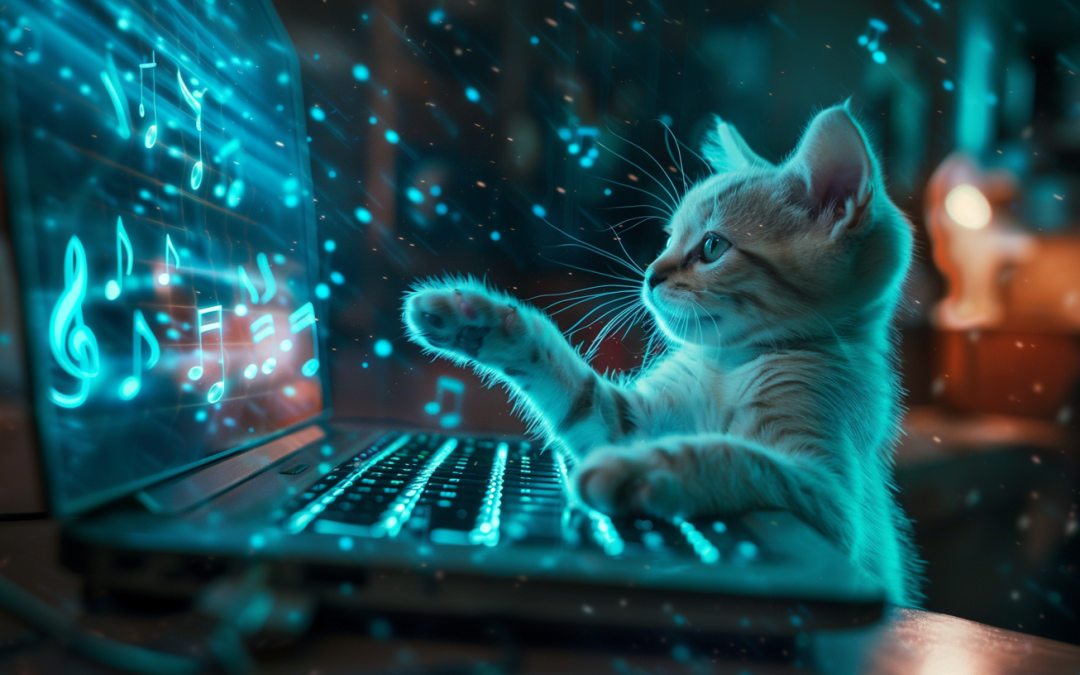Suno is a generative AI tool for creating music. I’ve been experimenting with it for generating music clips. It’s fun!
At first I thought pretty much all the Suno clips sounded the same (similar pop music styles). But I’ve been experimenting and I’ve come to like it! You really can generate many different styles of music.
My musical background
My first career was as a classical musician (I played pipe organ and harpsichord). I have a Masters in Music from Boston Conservatory and I spend my twenties working as a performing musician in Boston. That meant playing for weddings, funerals, freelancing in different orchestras, and teaching lessons.
I became a music librarian in order to support myself as a performing musician. My first job out of library school was as the music librarian at the Longy School of Music, in Cambridge, MA.
By the time I turned thirty, I decide that performing was too stressful, and I enjoyed my library work more. So I transitioned to working as a full time librarian. I’ve worked as a general reference librarian (Emmanuel College, Boston), a systems librarian (Bose Corporation), a library web manager & head of UX (MIT Libraries), and now I’m an elearning developer (University of Arizona Libraries).
Since I’m very interested in testing new AI tools, and also have a music background, Suno piqued my curiosity!
How does Suno work?
Enter a text prompt and it will create a short clip of music based on that prompt. You can then extend your clip to make a longer version.
You can generate music with or without vocals. It uses ChatGPT to create lyrics for you, or you can write your own lyrics. Free and paid accounts are available. You can create about 10 songs per day with the free version.
- If you are using a free version of Suno, they retain ownership of the songs you generate, but you’re allowed to use those songs for non-commercial purposes.
- If you are a paying subscriber to Suno, then you own the songs you generate. (I’m a paying subscriber).
Learn more in their FAQs.
So what do I think of AI music generation?
I think it’s great fun! I actually like some of the clips I’ve generated.
I’ve generated many different genres, not just the various popular styles you usually hear from them.
Like all generative AI tools you need to keep experimenting with different prompts and you won’t like every output. And be sure to use “custom mode” if you don’t want it to rewrite your prompt. A good place to get ideas for musical styles and terms is in this Wikipedia article: List of music genres and styles.
Here are some clips I’ve generated — just to see various styles I could get it to output.
Jazz piano
Bebop
Light orchestral
Klezmer music
Afro-pop female vocal
(ChatGPT made the lyrics, and then I used ChatGPT to translate it to French)
Hypnotic, electronic, synth-pop, krautrock
Bluegrass fiddle band
Circus clown
How well does it do with classical music?
Even thought the technology is pretty good for many types of music, it does get a bit weird when asked for specific styles of classical music.
For example, when asked for impressionist piano music (in the style of Debussy or Ravel), it often creates something that sounds more like Mozart. And for other genres and periods it often generates the basic sounds and structure pretty well, but the harmonies are weird. I would guess that it either lacks the training data, or I just haven’t found the best words to prompt it with.
Here are a couple of clips that came out ok, though. They aren’t masterpieces, but they could work for background music when you want certain kinds of atmosphere.
Renaissance boy choir (I gave it the lyrics to Gloria in Excelsis Deo)
Baroque pipe organ
What does this mean for professional musicians?
I really don’t think people will ever stop learning to play instruments, attending live concerts, or making music for fun. What technology like this might be used for is creating clips to use for YouTube videos, advertisements, and other types of background music. It could compete with various royalty free music collections that are used for background music everywhere.
Also, AI music generators make it easier for people to create music even if they lack formal musical training or access to expensive equipment and lessons. This opens up musical expression to a wider range of people.
I agree with Carlos Arana of Berkeley Online who discusses this in more detail in What is Generative AI and Should Musicians be Afraid?
By the way, here’s someone who has made an AI version of her own voice. She’s got some interesting ideas about all of this. See AI is changing music forever, Holly Herndon and Mat Dryhurst.
